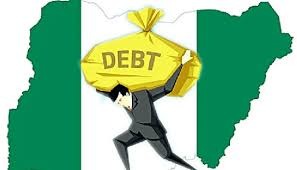By Calista Oyeoba/ Posted January 6, 2025
To a cursory view, Nigeria’s relationship with the World Bank is a complex one. With the country’s debt profiling becoming an addiction, many experts have raised concerns about the long-term impact on the country’s development being a major concern.
Subscribe To The Best Team In Conservative, Business, Technology, Lifestyle And Digital News Realtime! support@ddnewsonline.com
For instance, the Q2 of 2024, showed that Nigeria’s public debt was N134.3 trillion ($91.35 billion), which is in real terms is about 10.38% increase from the previous quarter. This debt is made up of domestic and external debt.
According to Dele Sobowale, a renowned journalist and public affairs analyst, he said, “Debt is the opium of the governing class.” This statement highlights the tendency of Nigeria’s governing class to rely heavily on borrowing instead of cutting edge internal revenue generation, which can have severe consequences for the country’s economy, downline.
Professor Ode Ojowu, a former Chief Economic Adviser to ex-President Obasanjo, revealed that World Bank Country Managers are more like economic salesmen, with loan targets to achieve. This dependency approach can lead to reckless lending, ignoring consequences for the country.
Subscribe To The Best Team In Conservative, Business, Technology, Lifestyle And Digital News Realtime! support@ddnewsonline.com
Nigeria’s debt problem is further complicated by the fact that the World Bank’s reports often fail to predict critical economic variables, revenue shortfalls, exchange rate and inflation.
This obvious lack of accurate economic data can lead to poorly informed decision making. Thus, in order to address this issue, Nigeria must adopt a more sustainable approach to borrowing and prudent economic management that prioritizes investment in viable projects, which will promote more transparency and accountability, thereby reducing reliance on debts.
The basic summary, is that, It is important for Nigeria to understand the long-term dangers of high debt profile and take proactive measures to break free from the cycle of borrowing and reckless spending.
Subscribe To The Best Team In Conservative, Business, Technology, Lifestyle And Digital News Realtime! support@ddnewsonline.com
NOTE: The opinion expressed by columnists/contributors do NOT reflect the viewpoint of DDNEWSONLINE.COM.
The story was researched and written by Calista Oyeoba.
Calista is on Student Industrial Work Experience Scheme (SIWES) at DDNEWSONLINE.COM from the Department of Mass Communication, Ekocity Polytechnic, Lagos



Freuen Sie sich auf 6 gastronomische Einrichtungen, darunter das Restaurante
Panoramico, in dem Sie ein Buffet und À-la-carte-Gerichte mit
Blick auf die Bucht genießen können. Sie können zwischen Classic Zweibettzimmern mit Aussicht und 2 Einzelbetten, Familienzimmern mit 1 Doppelbett und 2 Einzelbetten oder Suiten mit 1 Kingsize-Bett wählen. Die 24-Stunden-Rezeption bietet einen Geldwechsel und einen Conciergeservice.
Der Spa des gegenüberliegenden Schwesterhotel Pestana Casino Ocean and Spa
Hotel kann mitbenutzt werden. Dieses komfortable Hotel bietet ausgezeichnete Möglichkeiten um vom Alltag zu entfliehen. Auf der fantastischen Außenterrasse mit Blick auf den Yachthafen und das Meer können Sie täglich
ein köstliches Mittagessen à la Carte und den ganzen Tag über erfrischende Getränke genießen. Die Außenbereiche mit
Gärten und einem fotogenen Swimmingpool eignen sich hervorragend
für Hochzeiten, Taufen, Partys und Einweihungen.
Sind die Aussenpools beheizt? Wäscheservice, Weckdienst, Chemische Reinigung, Schuhputzservice
sowie Bügelservice zählen zum erweiterten Dienstleistungspaket.
Im Hotel Pestana Casino Park gibt es 379 Hotelzimmer mit Klimatisierung.
Der Spielplatz sowie das Kinderspielzimmer laden die Kinder zu Spiel & Spaß ein. Ziehen Sie unbedingt einen Aufenthalt im Wellnessbereich mit Fitnessstudio,
Whirlpool, Hammam und Dampfbad in Betracht.
References:
https://online-spielhallen.de/lukki-casino-mobile-app-dein-ultimativer-leitfaden/
This bonus is available only after two successful deposits.
Welcome to our section with all of today’s RocketPlay Casino bonus deals, both no deposit
and deposit ones. The Curacao license proves it to be a safe platform to play online.
RocketPlay Casino bonus codes are superb, but it’s vital to know
the terms. Put in $1,000 to earn $1,000 at no charge and a free $100 casino chip no deposit.
The value of the RocketPlay Casino bonus codes depends on the offer.
References:
https://blackcoin.co/spanish-21-rules/
While slots take center stage, we offer a diverse selection of games to cater to every type of player.
No gambler can resist such offersThis isn’t just an online casino—it’s an immersive experience crafted to deliver endless entertainment,
generous rewards, and nonstop action. It includes not only a welcome offer, but also excellent no deposit
bonuses, generous cashback offers, free spins and much more.
The platform offers easy navigation, secure transactions, and exciting
games. Players can access their accounts quickly and enjoy a smooth gaming experience.
The Ozwin casino login page is mobile-friendly, allowing access from smartphones
and tablets anytime.
You will find categories in the drop-down menu and select games in the lobby.
The mobile version of Ozwin repeats the official website on PC with slight changes to the
main and game menus. As an expert in online casino reviews, I recommend Ozwin Casino as a solid but not groundbreaking option. Furthermore, the
relatively high minimum withdrawal amount might be a deterrent for
more casual players who prefer to cash out smaller winnings more frequently.
The casino’s strengths lie in its generous bonus structure, which provides ample opportunities to
boost your bankroll.
The headline offer is a 400% match worth up to $4,000 plus 100 free spins split
across two deposit bonuses. Ozwin offers a stacked welcome package that many Aussie players will find attractive.
If you want to jump straight to games, check the slots section below.
Even if someone obtains your password, they cannot access your account without the 6-digit code sent to your registered mobile phone.
Your deposits get special treatment with offers like
a 300% bonus plus 50 free spins. Log in daily to find fresh deposit bonuses, like a 130%
bonus paired with 30 Free Spins.
References:
https://blackcoin.co/win2aud-australia-online-casino-pokies-sports-betting/
online casino that accepts paypal
References:
https://niazshomal.ir
paypal casino uk
References:
http://www.sunti-apairach.com
**mitolyn**
Mitolyn is a carefully developed, plant-based formula created to help support metabolic efficiency and encourage healthy, lasting weight management.